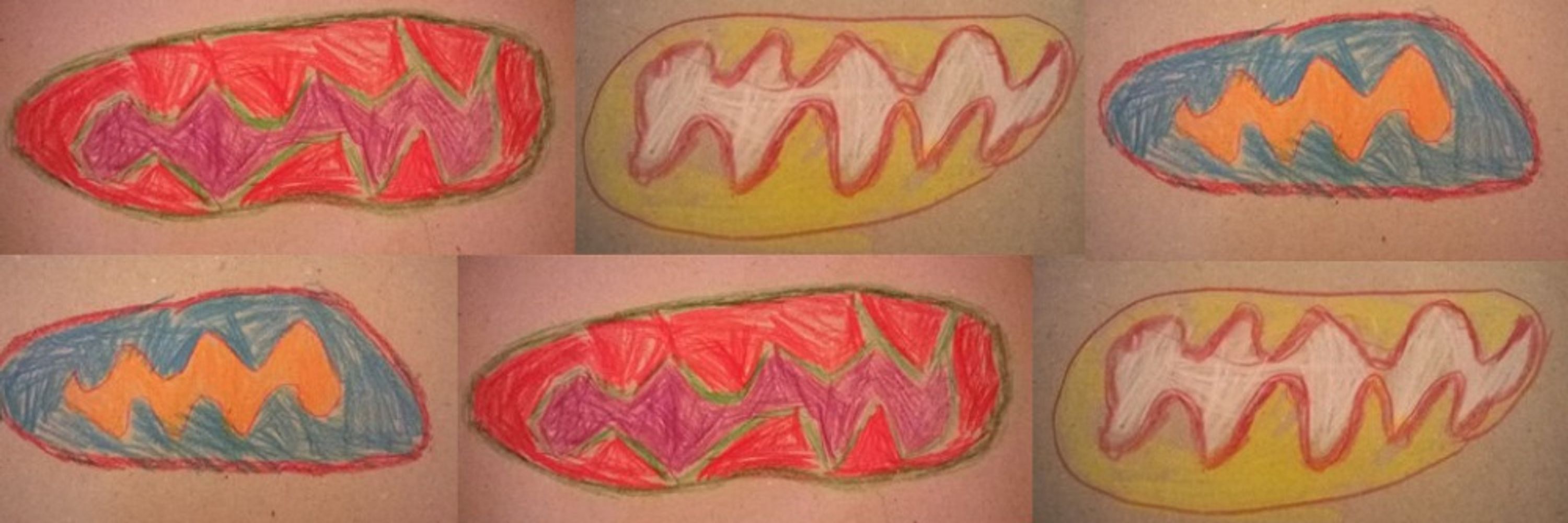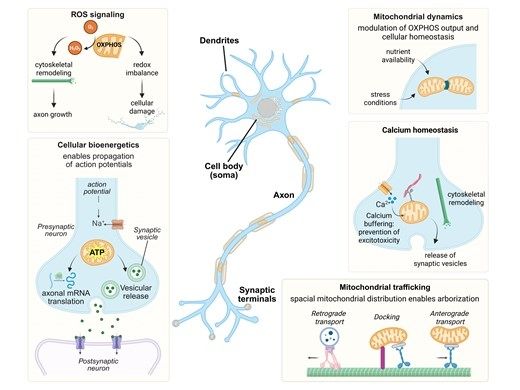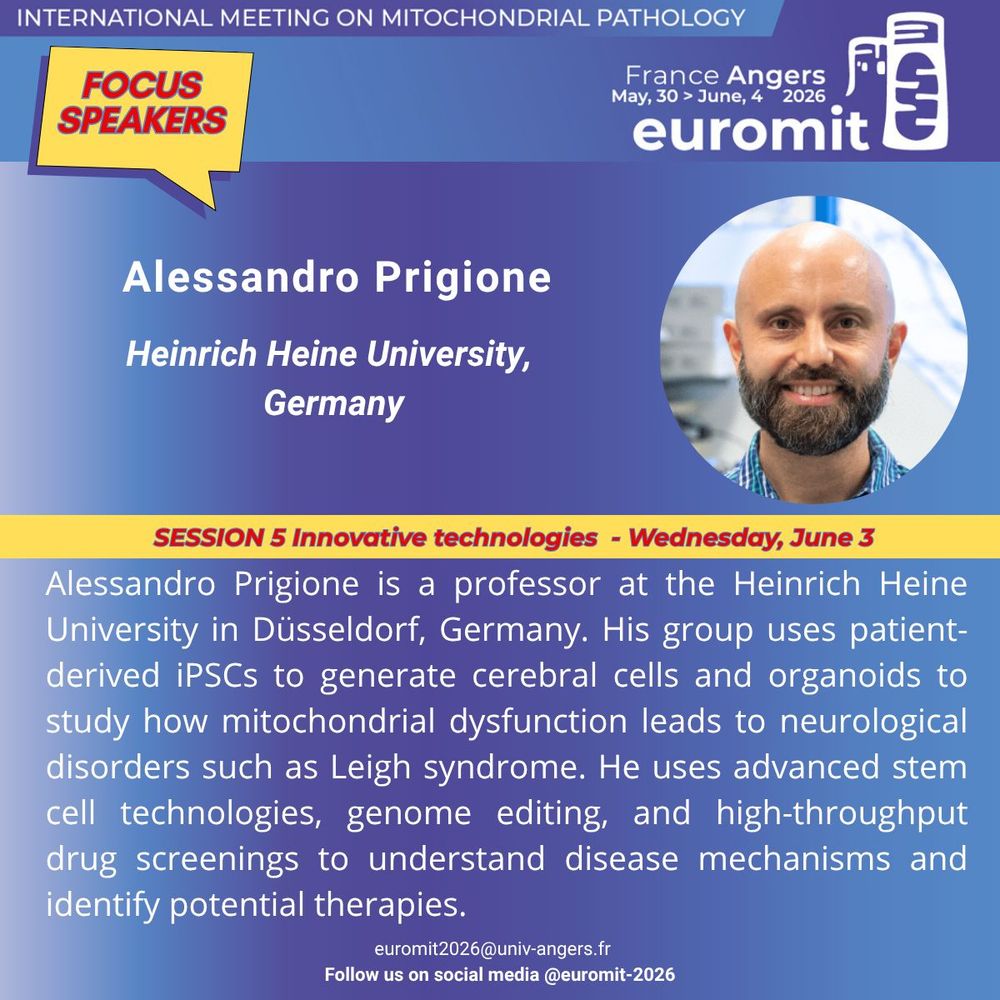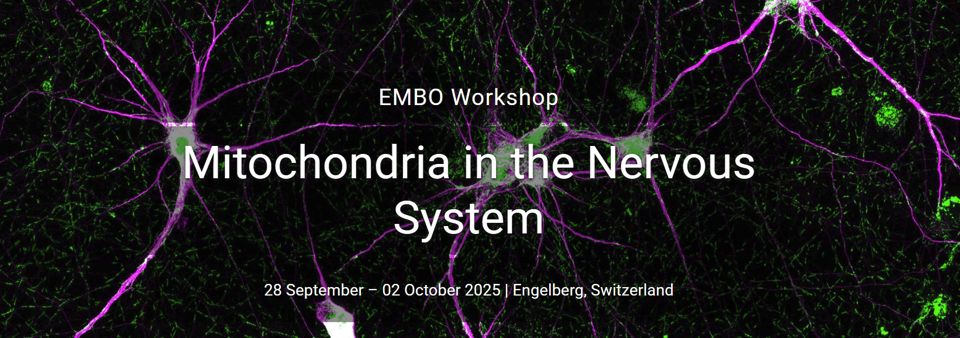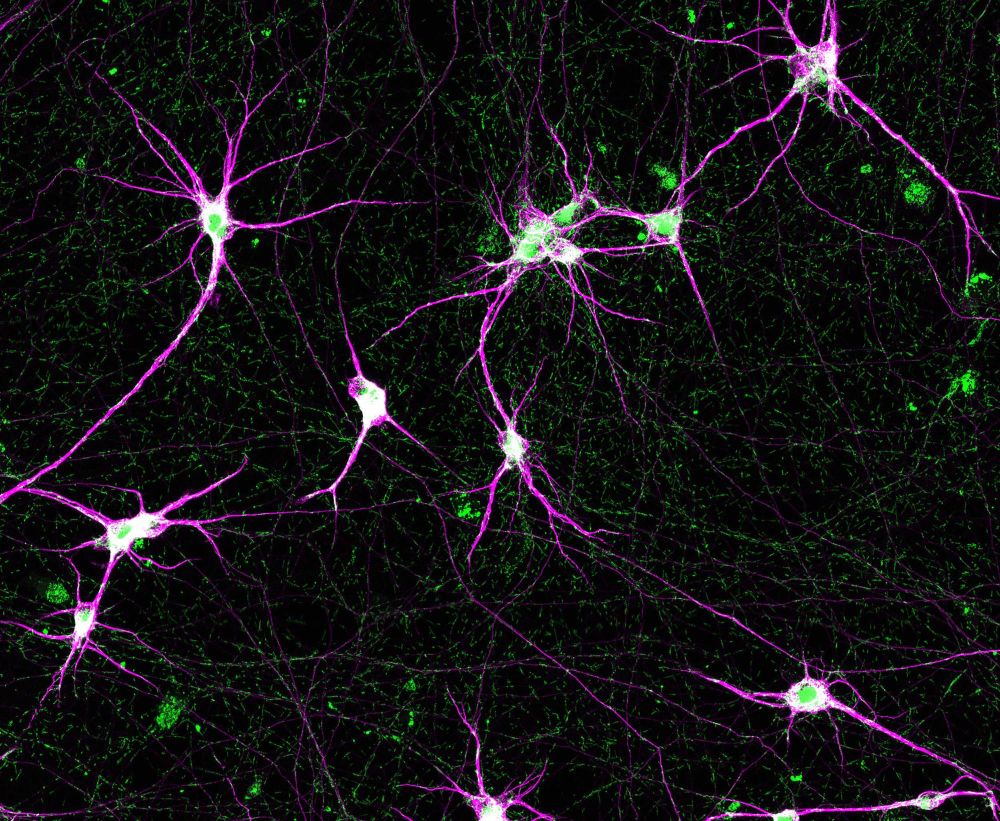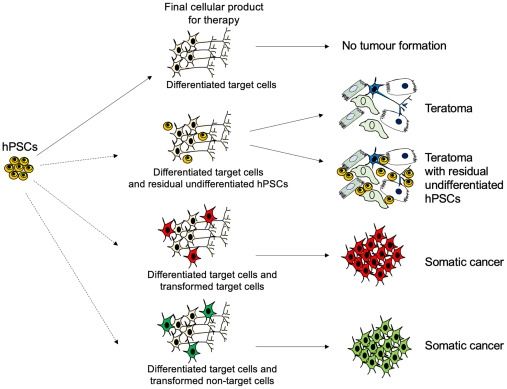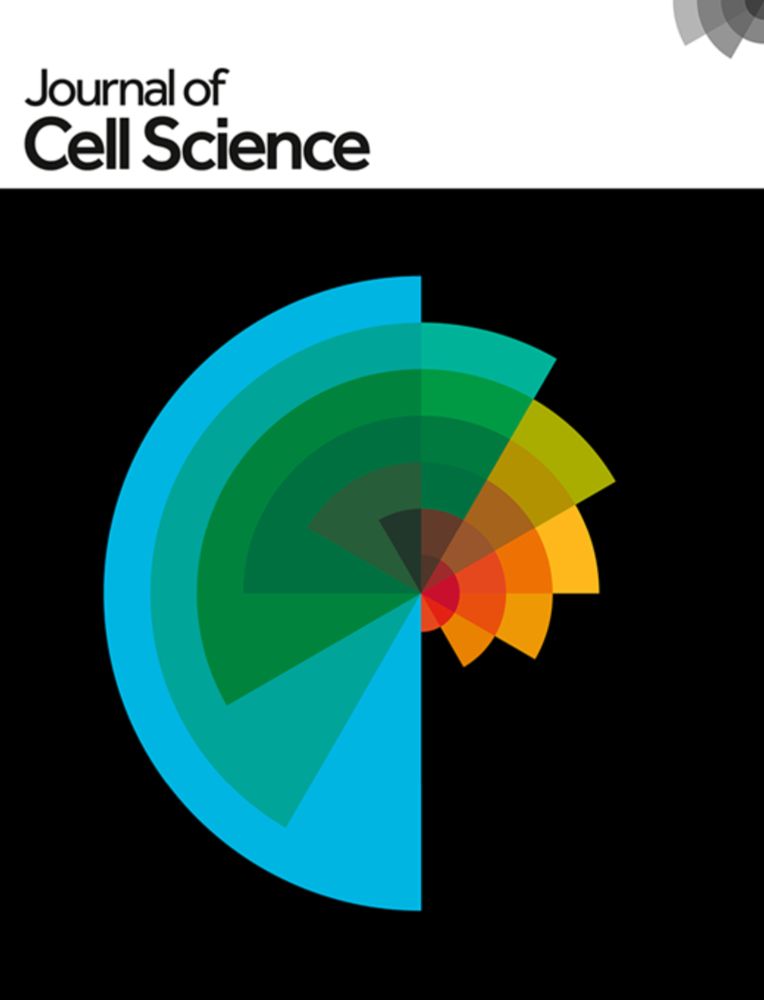Alessandro Prigione
@aleprigio.bsky.social
2.2K followers
1.5K following
62 posts
Stem Cell Metabolism lab. We use iPSCs and brain organoids to search for cures for rare mitochondrial neurological diseases. Professor at the Medical Faculty of Heinrich Heine University, Düsseldorf. Editor-in-Chief of Stem Cell Research journal. He/him.
Posts
Media
Videos
Starter Packs
Reposted by Alessandro Prigione
Reposted by Alessandro Prigione
Reposted by Alessandro Prigione
Tobias Marschall
@tobiasmar.bsky.social
· Jul 23
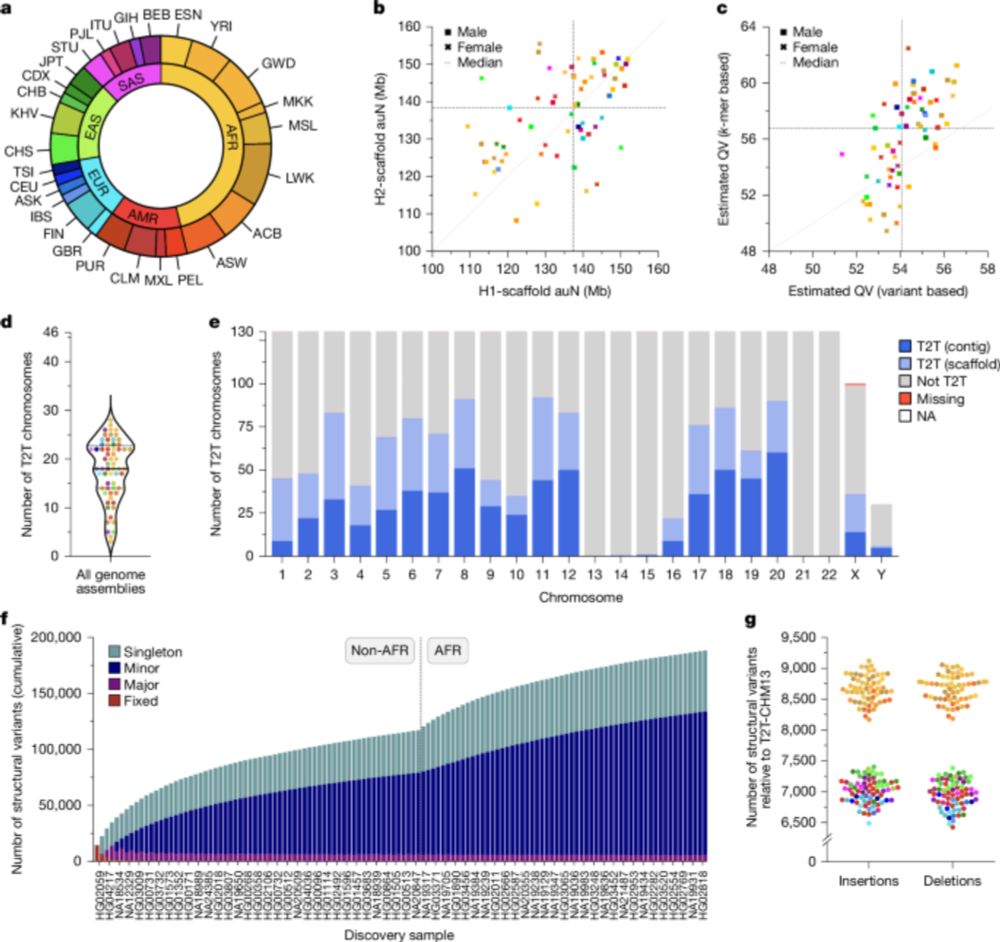
Complex genetic variation in nearly complete human genomes - Nature
Using sequencing and haplotype-resolved assembly of 65 diverse human genomes, complex regions including the major histocompatibility complex and centromeres are analysed.
tinyurl.com
Reposted by Alessandro Prigione
Reposted by Alessandro Prigione
Nature
@nature.com
· May 15

Spatial transcriptomics reveals human cortical layer and area specification - Nature
Multiplexed error-robust fluorescence in situ hybridization (MERFISH) together with deep-learning-based nucleus segmentation enabled the construction of a highly detailed and informative spatially resolved single-cell atlas of human fetal cortical development.
go.nature.com
Reposted by Alessandro Prigione
Christian Frezza
@frezzalab.bsky.social
· May 15

Molecular machineries shaping the mitochondrial inner membrane - Nature Reviews Molecular Cell Biology
The inner mitochondrial membrane forms cristae, which are crucial for mitochondrial function. This Review explores the protein complexes that regulate cristae dynamics, including remodelling and fusio...
www.nature.com
Reposted by Alessandro Prigione
Debby Silver
@debbysilver.bsky.social
· May 14
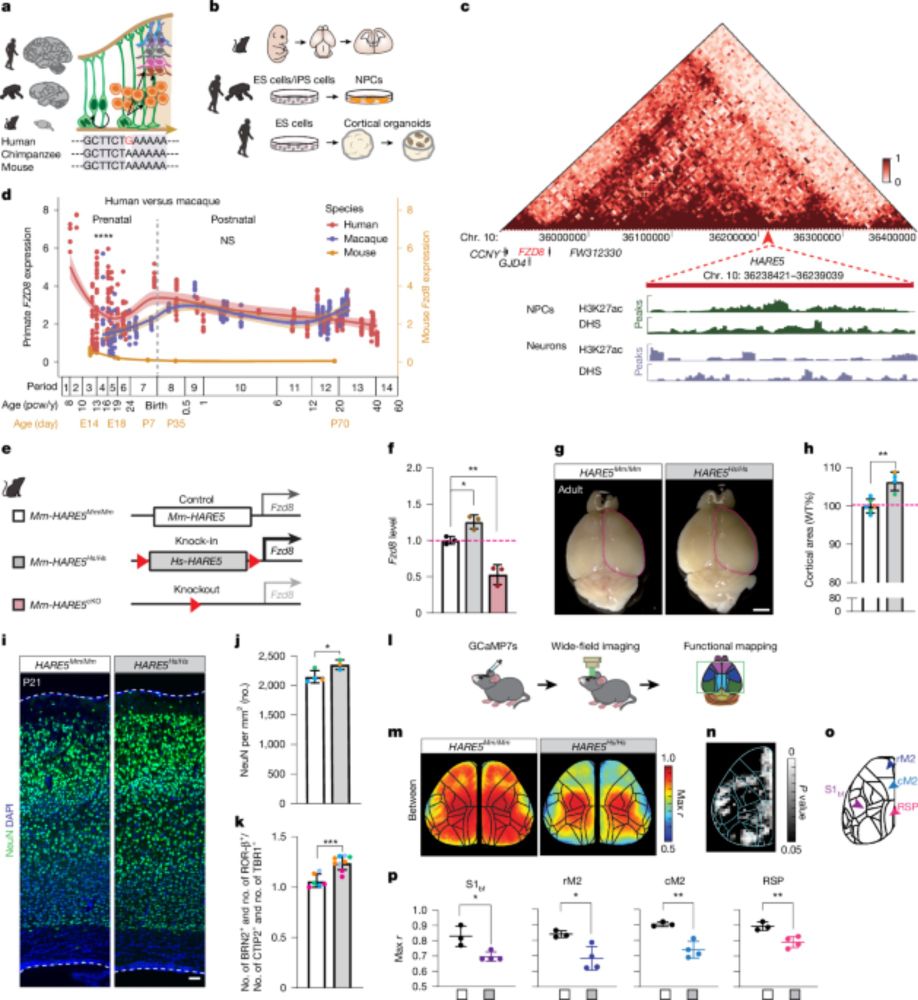
A human-specific enhancer fine-tunes radial glia potency and corticogenesis - Nature
HARE5, a human accelerated region enhancer, modulates cortical development by influencing neural progenitor cell behaviour, leading to an enlarged neocortex with increased functional independence betw...
www.nature.com
Reposted by Alessandro Prigione
Reposted by Alessandro Prigione
Leon Smyth
@leonsmyth.bsky.social
· May 2
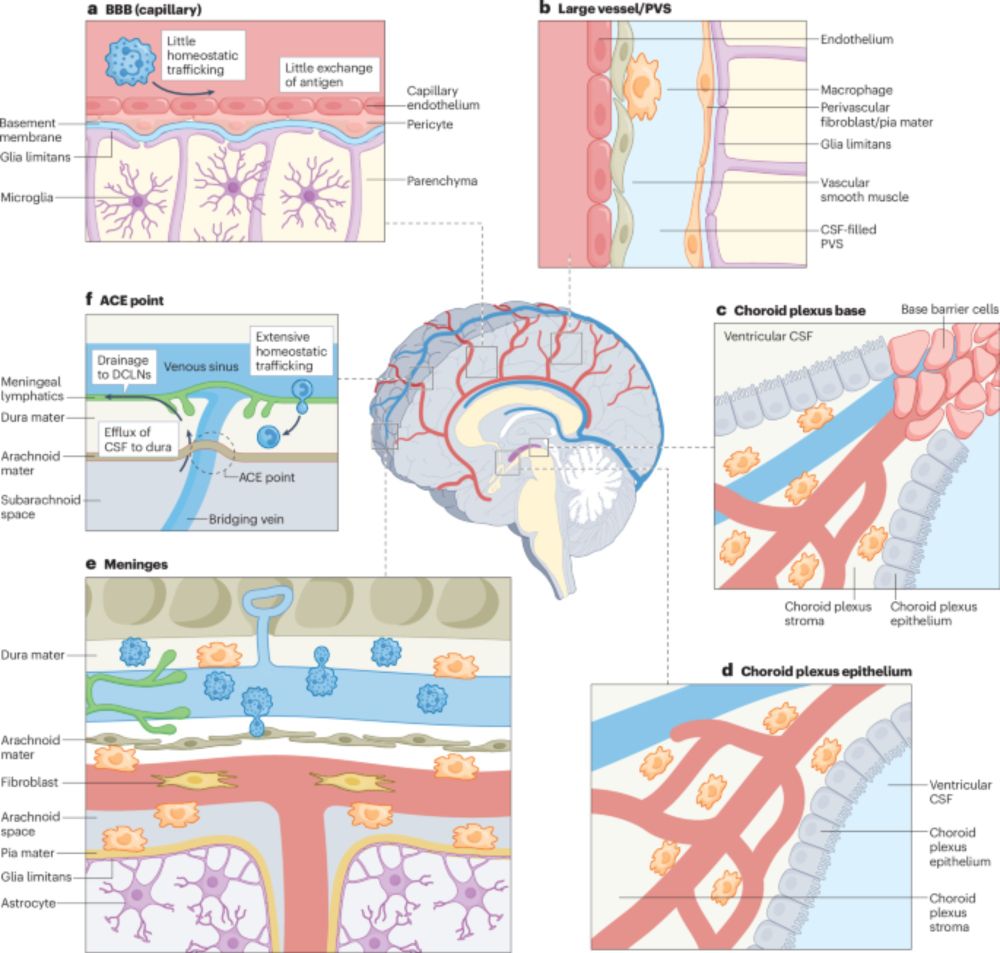
Redefining CNS immune privilege - Nature Reviews Immunology
In this Perspective, Smyth and Kipnis reappraise the concept of immune privilege in the central nervous system. Although immune privilege was originally thought to involve isolation of the central ner...
www.nature.com
Reposted by Alessandro Prigione
Eric Topol
@erictopol.bsky.social
· May 1

Stem cells as role models for reprogramming and repair
Stem cells are a promising source for cellular therapies across many diseases and tissues. Their inherent ability to differentiate into other cell types has been the focus of investigation over decade...
www.science.org
Reposted by Alessandro Prigione
Silvia Cappello
@silvianeuro.bsky.social
· Apr 11

Cellular interplay in brain organoids: Connecting cell-autonomous and non-cell-autonomous mechanisms in neurodevelopmental disease
The field of brain organoids has experienced a period of rapid and transformative growth, enabling researchers to investigate complex human biological…
www.sciencedirect.com
Reposted by Alessandro Prigione
